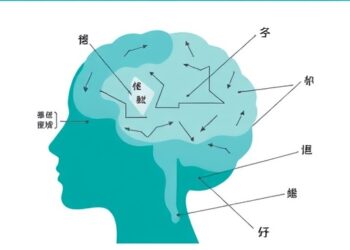Ottawa, ON, June 24, 2024 – Long-term care residents whose primary language was a language other than English and French were less likely to visit the emergency department, be hospitalized or die when their family doctor spoke their language, according to new research from ICES.
Ottawa, ON, June 24, 2024 – Long-term care residents whose primary language was a language other than English and French were less likely to visit the emergency department, be hospitalized or die when their family doctor spoke their language, according to new research from ICES.
Research has established that patients who face language barriers in the healthcare system often struggle to access services and receive care that is of lower quality and safety.
Published in BMJ Public Health, a new study examines whether these disparities can be attributed to language barriers. In a cohort of almost half a million people receiving home care services between 2010 and 2018 in Ontario, Canada, researchers defined “language concordance” as a patient who received primary care from a family physician who spoke their language.
While the risk of emergency department (ED) visits, hospitalizations and mortality decreased for Allophones—people speaking a language other than English or French—when they received language-concordant care, outcomes were no different for Francophones.
“Interestingly, outcomes for Francophones were not impacted by whether they received language-concordant or language-discordant primary care,” says Michael Reaume, resident physician in internal medicine at the University of Manitoba. “We think that the finding is because sixty-one percent of Francophones in the study did in fact receive care from French-speaking family doctors.”
“This means that relatively fewer Francophones were at risk of experiencing poor outcomes. For me, this suggests that policies such as the French Language Services Act have been successful at facilitating access to language-concordant care for the Franco-Ontarian population.”
Key findings:
-
Most home care recipients were anglophone (80%) while francophones (2%) and allophones (18%) represented a minority of the cohort.
-
Allophones who received language-concordant primary care experienced fewer ED visits (53% vs 58%), hospitalizations (35% vs 38%), and fewer died during the study period (14% vs 17%), when compared with those who received language-discordant primary care.
”This study highlights the importance of systematically collecting both patient and physician language data,” says Reaume.
While physician language data is collected in most jurisdictions across Canada, only three provinces and territories (Northwest Territories, Nova Scotia, Prince Edward Island) have patient language data included on their residents’ health cards.
“This information is necessary to allow for matching of patients to physicians who speak their preferred language, and also to identify patients who would benefit from professional interpreter services when the former is not possible,” adds Reaume.
The study, “The impact of patient-family physician language concordance on healthcare utilization and mortality among home care recipients receiving primary care in Ontario, Canada” was published in BMJ Public Health.
Authors: Reaume M, Batista R, Sucha E, Pugliese M, Roberts R, Rhodes E, Seale E, Kendall CE, Bjerre L, Bouchard L, Johnston S, Sood MM, Prud’homme D, Manuel D, Tanuseputro P.
ICES is an independent, not-for-profit research and analytics institute that uses population-based health information to produce knowledge on a broad range of healthcare issues, leading cutting-edge studies and analyses evaluating healthcare policy, delivery, and population outcomes. ICES knowledge is highly regarded in Canada and abroad and is widely used by government, hospitals, planners, and practitioners to make decisions about healthcare delivery and to develop policy. For the latest ICES news, follow us on X, formerly Twitter: @ICESOntario
FOR FURTHER INFORMATION PLEASE CONTACT:
Misty Pratt
Senior Communications Associate, ICES
Misty.Pratt@ices.on.ca 613-882-7065
Journal
BMJ Public Health
Method of Research
Observational study
Subject of Research
People
Article Title
Impact of patient–family physician language concordance on healthcare utilisation and mortality: a retrospective cohort study of home care recipients in Ontario, Canada
Article Publication Date
24-Jun-2024




